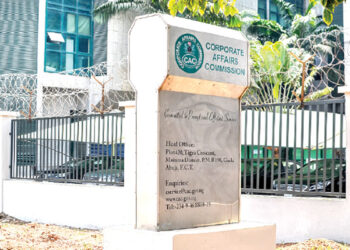Foreign investment inflow from South Africa into Nigeria has fallen by over 80% in the last 4 years.
In the years following a return to democracy, Africa’s most advanced economy has for years seen investment in Africa’s largest economy, Nigeria as a strategic investment destination.
Nigeria’s status as Africa’s largest market from the point of view of population and age had for years made it a destination for South African businesses in search of growth outside its shores.
However, the recent exit of some major South African businesses from Nigeria suggests the boom years of capital outflow into Nigeria are slowing.
A cursory analysis of four years of data reveals capital importation from South Africa has gone from about $2.3 billion in 2019 to $428 million in 2022 representing an 81% drop in the last 4 years.
This year (2023) capital importation from South Africa registered just $228 million which when annualized is around $456 million.
Why are South African businesses leaving Nigeria?
Nigeria, with its large population and growing economy, has long been seen as an attractive destination for foreign investors, especially from South Africa.
- However, in recent years, several major South African companies have exited or reduced their presence in Nigeria, citing various challenges and difficulties.
- Some of the factors that have contributed to this trend include
Regulatory uncertainty and disputes: Several South African businesses have faced regulatory hurdles and fines in Nigeria, such as MTN, which had to pay a $1.7 billion penalty for failing to disconnect unregistered SIM cards in 2015.
- Sun International, a hotel and gaming group, also left Nigeria in 2016 after facing legal issues with its local partner and the Economic and Financial Crimes Commission.
- Shoprite, Africa’s largest retailer, announced its intention to sell its Nigerian operations in 2020, following several closures of its outlets due to protests and court orders.
Economic downturn and currency volatility: Nigeria’s economy has been hit hard by the fall in oil prices, the COVID-19 pandemic, and the devaluation of the naira.
- This has affected consumer spending and demand, as well as the profitability and repatriation of earnings for foreign businesses.
- For instance, Southern Sun, a major hotel chain from South Africa sold off its Nigerian business over the downturn in the hospitality business, FX devaluation, and lower margins.
- Clover Industries, a dairy producer, also withdrew further investments in Nigeria in 2019, due to currency fluctuations and inflation.
Competition and market dynamics: Nigeria’s retail sector is dominated by informal traders and small-scale businesses, which offer lower prices and more convenience to customers than large-scale supermarkets.
- South African retailers have struggled to compete with these local players, as well as with other foreign entrants such as SPAR and Carrefour.
- Moreover, some South African businesses have struggled to adapt to the preferences and tastes of Nigerian consumers, who may have different expectations and needs than their South African counterparts.
Despite these challenges, Nigeria remains a market of significant potential for South African businesses that can overcome the barriers and risks involved.
Some of the sectors that still offer opportunities include banking, media, energy, telecommunications, and infrastructure.
Some of the South African businesses that have continued to operate successfully in Nigeria include Standard Bank, DStv, Protea Hotels, and Sasol.
Meanwhile, President Bola Tinubu recently held bilateral talks with South African President, Cyril Ramaphosa, in New York City, as he sought stronger economic ties ahead of the United Nations General Assembly.





















